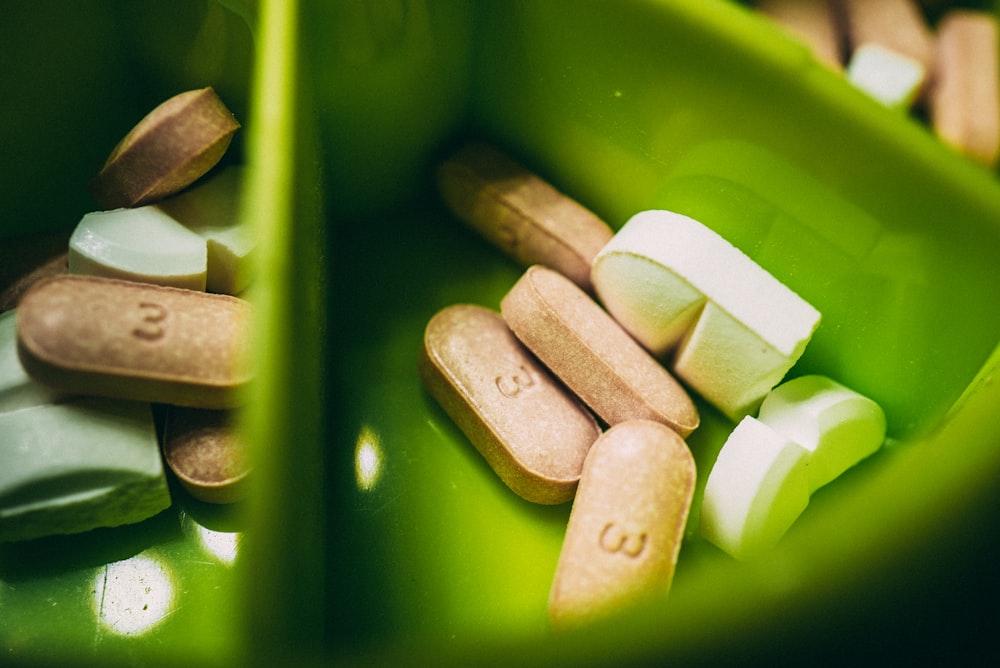
The human body is full of various proteins and crucial substances which form the building blocks of our organs, muscles, and other tissues. Collagen is one of the better-known examples of these proteins, often associated with youthful skin and minimising wrinkles.
However, collagen isn’t just good for anti-aging purposes.
Getting more collagen into your system, through supplementation and the consumption of certain foods, can also support your joints, build your muscles, and give you more vitality in your day-to-day life. Below, we’ll discuss everything you need to know about collagen, and whether you might benefit from taking collagen supplements.
What is Collagen and Why Do We Need it?
Collagen is a form of natural protein, and the most abundant protein in the human body. It’s the structural substance responsible for various body parts, including muscles, skin, ligaments, and tendons. Interestingly, there are about 28 types of collagens, with type I accounting for approximately 90% of the collagen in the human body. The other common types of collagen include:
- Type II: Found in intervertebral discs and joints
- Type III: Located in skin and blood vessels
- Type IV: Components of your inner ear, kidney, and eye lenses
Collagen plays a number of important roles, from providing your skin with elasticity, resilience and hydration, to strengthening your bones. Collagen is composed mainly of amino acids including proline, glycine, and hydroxyproline.
The various components of collagen contribute to everything from immune response and tissue repair to cellular communication and cell migration.

What Causes a Loss of Collagen?
The body naturally produces collagen in connective tissue cells known as fibroblasts. However, as we get older, fibroblast function isn’t as reliable, and collagen production begins to slow.
Along with the loss of another major structural protein, elastin, an absence of collagen leads to signs of aging such as wrinkles and sagging. As you get older, collagen production naturally declines, but certain lifestyle and dietary factors can accelerate the loss of collagen. For instance:
- Alcohol: Excessive consumption of alcohol can damage skin repair mechanisms and impair the production of collagen.
- Sugar: High sugar levels in your diet and processed foods can lead to premature aging through a process of glycation, which reduces collagen turnover.
- Sun exposure: Excessive sun exposure can degrade collagen production and harm skin functions in a range of additional ways.
- Cigarettes: Smoking is a common cause of collagen degradation and rapid skin aging, wrinkles, and loss of elasticity.
How Can You Get More Collagen into Your System?
To avoid the signs of aging as much as possible, many people have attempted to leverage collagen supplements, or increase their intake of collagen in alternative ways. Collagen supplements usually come in powder form, but there are various products out there, including face creams intended to help hydrate your skin and improve collagen at the same time.
Collagen supplements are suitable for consumption either on their own or added to beverages and foods such as yogurt and oatmeal. Healthcare professionals even use collagen-based materials in the medical world to treat burns, wounds, and diabetic ulcers.
There are also a number of foods which can increase your collagen intake.
Collagen is often found in the connective tissues of animals, so foods such as bone broth, pork skin, chicken skin, beef, and fish are all excellent sources of collagen. Because your body produces collagen naturally from amino acids, you can also ensure you’re supporting the production of collagen by eating plenty of protein with beans, eggs, fish, and poultry.
Alongside amino acids, your body will need other dietary components for effective collagen production. For instance, vitamin C is essential for collagen synthesis, so it’s a good idea to eat foods rich in this substance, such as broccoli, citrus fruits, and red peppers.
Eating a diet high in beneficial plant compounds can also help to improve overall skin health by reducing inflammation and minimizing collagen degradation.
If you’re a vegetarian or vegan, there are currently no direct collagen alternative supplements on the market made without animal products. However, you may be able to purchase products that contain the amino acids involved in collagen synthesis, such as proline, lycine, and glycine.

Health Benefits of Taking Collagen Supplements
Taking collagen supplements can offer a number of health benefits. However, it’s a good idea to speak to your doctor before you begin taking supplements for any reason. This can help to ensure you’re using the right substances to address any problems you may be having.
Some of the health benefits of collagen include better bone health, joint health, skin health, and heart health. Collagen also provides beauty benefits. Collagen supplements can potentially improve your hair health, nails, and youthful appearance.
Can Anyone Take Collagen Supplements?
Collagen supplements are associated with a number of positive health benefits, and there doesn’t appear to be a large number of risks for most people taking these substances. Taking collagen supplements regularly could be an excellent way to increase muscle mass, reduce bone loss, relieve joint pain and even improve skin health.
Collagen supplements are also an excellent way to fight back against the signs of aging if you’re concerned about skin elasticity, dryness, and wrinkles.
Of course, you’ll always get the best results from collagen supplements when you take them alongside a healthy, balanced diet with plenty of proteins, vitamins and minerals. Making sure you can design the ideal diet for your needs will improve your chances of addressing a range of common issues, from skin concerns to early aging.
To find out the optimal diet type and best supplements for you based on your genetic makeup, read your genetic nutrition reports and skin reports from CircleDNA.







Comments are closed.